
Cyprus


A.I. Kitsios LLC
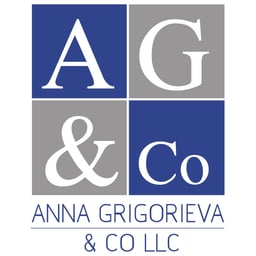
AG ADVOCATES (Anna Grigorieva & Co LLC)

AGPLAW | A.G. Paphitis & Co. LLC

Akis Papakyriacou LLC
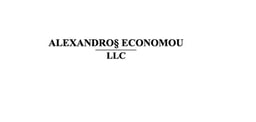
Alexandros Economou LLC

AMG Mylonas & Associates, LLC
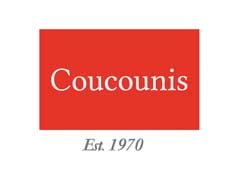
Andreas Coucounis & Co LLC

Andreas Demetriades & Co LLC

ANDREAS KONNARIS LLC

Antis Triantafyllides & Sons LLC

Antoniou McCollum & Co. LLC

Athos Demetriou Associates LLC

CHAMBERSFIELD ECONOMIDES KRANOS

Christos Patsalides L.L.C.

Chrysostomides Advocates & Legal Consultants

Chrysses Demetriades & Co Law Office

Cipcic-Bragadin Mesic & Associates

Clerides, Anastassiou, Neophytou LLC

COSTAS TSIRIDES & CO LLC

E & G Economides LLC

ECONOMOU & CO LLC

Elias Neocleous & Co LLC

EMILY A. LEMONIATI LLC

Frangos Law

G. Leontiou LLC

G.C.Hadjikyprianou & Associates LLC

GEORGE K. KONSTANTINOU LAW FIRM

George Y Yiangou LLC

George Z. Georgiou & Associates LLC

Georgiades & Pelides LLC

GIORGOS LANDAS LLC

Hadjianastassiou, Ioannides LLC

Harris Kyriakides

Haviaras & Philippou L.L.C.

Ioannides Demetriou LLC

IP Cyprus - Ioannides, Cleanthous & Co LLC

K. Argyridou & Associates LLC

Karamanolis & Karamanolis LLC
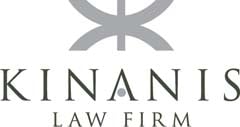
KINANIS LLC
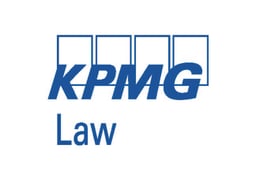
KPMG Law Cyprus
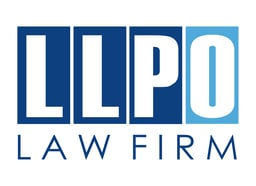
LLPO Law Firm
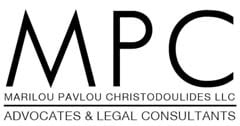
Marilou Pavlou Christodoulides LLC

Michael Damianos & Co LLC

Michael Kyprianou & Co. LLC

Montanios & Montanios LLC

Mouaimis & Mouaimis LLC

N. Pirilides & Associates LLC

P. N. Kourtellos & Associates LLC

Patrikios Legal

Pittas + Koullouros LLC
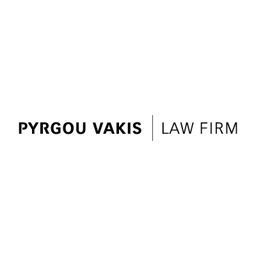
PYRGOU VAKIS LAW FIRM

Scordis, Papapetrou & Co LLC

Sizinos & Co LLC
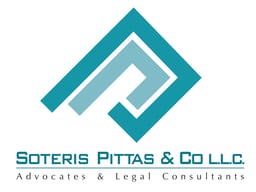
Soteris Pittas & Co L.L.C

STELIOS AMERICANOS & CO LLC
Firms in the Spotlight

STELIOS AMERICANOS & CO LLC
Stelios Americanos & Co LLC is a full-service commercial law firm with its headquarters in Nicosia, specialising in corporate and commercial law, banking finance, litigation, tax and financial adv

Montanios & Montanios LLC
Montanios & Montanios (“M&M”) is one of the oldest, continually operating, law firms in Cyprus with an international practice.

K. Argyridou & Associates LLC
We are a boutique firm providing high quality services in the areas of banking and financial services.

George Y Yiangou LLC
George Y. Yiangou LLC is one of the biggest law offices in Cyprus with almost 40 years of professional expertise, providing a broad range of legal services</

AGPLAW | A.G. Paphitis & Co. LLC
With over 19 years of excellence, AGPLAW is a premier full-service law firm headquartered in Cyprus, with strategic offices in London and Dubai.
Recognized for its unwavering commitment

P. N. Kourtellos & Associates LLC
P. N. Kourtellos & Associates LLC is an independent and dynamic law firm in Limassol, founded by Dr Pavlos Neofytou Kourtellos and Ioanna Demetriou in 2011.

Scordis, Papapetrou & Co LLC
SCORDIS, PAPAPETROU & Co LLC is a leading law firm in Cyprus whose roots date from 1922. Today it has more than 30 specialized lawyers and is renowned for its strong international corporate and di

AMG Mylonas & Associates, LLC
AMG Mylonas & Associates, LLC is an independent and dynamic entrepreneurial boutique law firm based in Limassol with associates in Greece and a professional network across Europe, Russia, Ukraine,

Karamanolis & Karamanolis LLC
Karamanolis & Karamanolis LLC is a boutique firm specialized in Commercial and Corporate Litigation and Arbitration.

A.G Erotocritou LLC
A.G. Erotocritou LLC is a dynamic law firm advising on non-contentious, advisory and litigation matters.

Soteris Pittas & Co L.L.C
SOTERIS PITTAS & CO LLC is a boutique law firm, focusing on the areas of law related to business activity and dedicated to providing its clients with outstanding, highly personalized, legal repres
Interviews
View
Andreas Mylonas, Managing Director and Advocate
AMG Mylonas & Associates, LLC
Elena A. Konnari, Managing Director
ANDREAS KONNARIS LLC

Kypros Ioannides, Partner
Hadjianastassiou, Ioannides LLC
Dr. Pavlos Neofytou Kourtellos, Managing Partner
P. N. Kourtellos & Associates LLC
Dr. Pavlos Neofytou Kourtellos, Advocate – Managing Partner
P. N. Kourtellos & Associates LLC

Maria Papaefstathiou Damianos, Partner
Michael Damianos & Co LLC

Elias Neocleous, Managing Partner
Elias Neocleous & Co LLC

Ioanna Solomou, Partner
Michael Kyprianou & Co. LLC

Angelos G. Paphitis, Managing Partner
AGPLAW | A.G. Paphitis & Co. LLC

Michael Kyriakides, Partner
Harris Kyriakides

Maria Papaefstathiou Damianos, Managing Partner
Michael Damianos & Co LLC

EMILY A. LEMONIATI, FOUNDER & MANAGING DIRECTOR, EMILY A. LEMONIATI LLC
EMILY A. LEMONIATI LLC
Karolina Argyridou, Managing Partner
K. Argyridou & Associates LLC
Christos O. Ioannides, Advocate – Legal Consultant, Co – Managing Partner
LLPO Law Firm

Yiannis Karamanolis, Managing Director
Karamanolis & Karamanolis LLC

Stelios Americanos, Managing Partner
STELIOS AMERICANOS & CO LLC

Angelos G. Paphitis, Managing Partner
AGPLAW | A.G. Paphitis & Co. LLC
Alexis Erotocritou, Partner
A.G Erotocritou LLC

Stavros Pavlou, Executive Chairman
Patrikios Legal

Kyriacos Scordis, Managing Partner
Scordis, Papapetrou & Co LLC
News & Developments
ViewPress Releases
Foreign Direct Investment: Cyprus’s new guardrails between opportunity and security
Cross-border investment has long been one of the most powerful engines of economic integration, shaping markets, supply chains and corporate strategies across jurisdictions. In an increasingly interconnected world, capital no longer flows merely to seek returns, but to secure access to technology, resources, infrastructure, and strategic capabilities.
Against this backdrop, foreign direct investments (“FDIs”) have become a central pillar of economic growth, innovation, and international market access. In Cyprus, sustained inflows of foreign capital have played a key role in the development of sectors such as energy, shipping, technology, tourism, and financial services. At the same time, the protection of national security, public order, and critical infrastructure has moved to the forefront of public policy, reflecting broader geopolitical and economic realities.
It is within this evolving landscape that Cyprus has introduced its first FDI screening framework through Law 194(I)/2025 (the “Cyprus FDI Law”).
The EU FDI screening in context
At European Union (“EU”) level, Regulation (EU) 2019/452, adopted on 19 March 2019 and effective as of 11 October 2020 (the “Regulation”), established a framework for screening of FDIs that seeks to reconcile continued openness to foreign capital with the need to safeguard security and public order within the union. Rather than creating a centralised EU approval regime, the Regulation operates as a coordination and information-sharing mechanism that sits alongside national screening systems. It requires member states to notify the European Commission and, where relevant, other member states, of potentially sensitive investments, enabling them to submit comments and allowing the Commission to issue non-binding opinions in cases that may affect projects or programs of the Union’s interest to assist each member state with taking an informed approach. In all instances, final screening decisions remain with the competent national authorities.
Since 2020, the framework has driven a gradual shift away from a fragmented landscape towards greater alignment of national regimes, increased use of screening tools, and a broader substantive focus on areas such as critical infrastructure, sensitive technologies, energy, data and supply chain resilience. This trajectory has continued with the European Commission’s 2024 proposal to revise the Regulation, as well as the subsequent provisional political agreement reached in 2025, which indicate an intention to further strengthen coordination, procedural alignment and the scope of screening across the Union.
Against this evolving European regulatory landscape, Cyprus’s adoption of a national FDI screening mechanism represents a natural and strategically necessary development, reflecting its growing regional role and increasing investment interest from third countries. The Cyprus FDI Law, must therefore be understood not as an isolated regulatory initiative, but as part of a wider EU-level shift towards coordinated investment governance, carefully calibrated to balance necessary security and public order safeguards with the country’s objective of remaining an attractive European destination for FDI, taking into account Cyprus’s economic profile, market structure, strategic positioning and geopolitical relevance.
The Cyprus FDI Law: Purpose and scope
The Cyprus FDI Law, which takes effect on 02 April 2026, introduces a formal national screening regime for FDIs in Cyprus. Its purpose is not to restrict foreign capital, but to introduce targeted oversight where foreign participation may raise concerns relating to national security or public order
It applies only in defined circumstances and is focused on investments that combine foreign control, economic significance, and strategic relevance.
Definitions
Foreign Direct Investment - adopts the definition of the Regulation: “an investment of any kind by a foreign investor aiming to establish or to maintain lasting and direct links between the foreign investor and the entrepreneur to whom or the undertaking to which the capital is made available in order to carry on an economic activity in a Member State, including investments which enable effective participation in the management or control of a company carrying out an economic activity”.
Foreign Investor: “(a) a natural person who is not a national of a Member State of the European Union (EU), a Member State of the European Economic Area (EEA), or Switzerland, and who intends to make or has made a foreign direct investment; or
(b) an enterprise of a third country, which intends to make or has made a foreign direct investment”.
Third Country: “Any country outside the Member States of the European Union (EU), the Member States of the European Economic Area (EEA), and Switzerland”.
Competent Authority: “The Ministry of Finance of Cyprus with the assistance of an advisory committee”.
Strategically important enterprise: “An enterprise that carries out activities falling within particularly sensitive sectors as these are defined in the Annex of the Cyprus FDI Law”.
Enterprise: “(a) any entity, whether or not it is a legal person, that is not a natural person, and includes a company incorporated under the provisions of the Companies Law or any entity established in any other manner, and includes a partnership, association, foundation, and trust;
(b) an entity that has been recognized or established under the law of a country or territory outside the Republic of Cyprus and
(i) carries out activities in the Republic of Cyprus; or
(ii) supplies goods or services in the Republic of Cyprus”.
The blueprint of the Cyprus FDI Law
Under the Cyprus FDI Law, Foreign Investors are required to notify and obtain prior approval from the Competent Authority before completing a covered investment. Notification is mandatory and subject to a standstill obligation, meaning that the transaction may not be completed until approval is granted, and related agreements are treated as being subject to a condition precedent of obtaining such approval, where all the following conditions are met:
Special participation and control: The investment results in the acquisition of a special participation which arises where a Foreign Investor acquires 25% (twenty-five per cent) or more of the shares or voting rights of an enterprise, or otherwise obtains the ability to exercise decisive influence over its management or decisions, whether through formal legal rights or de facto control;
Value threshold: The value of the investment reaches or exceeds EUR 2,000,000 (two million euros) either in a single instance or cumulatively over a twelve-month period; and
Enterprise of strategic importance: The investment concerns an enterprise of strategic importance, namely an enterprise operating in particularly sensitive sectors linked to critical physical or digital infrastructure, including energy, transport, telecommunications, digital and data infrastructure, financial services infrastructure, health, education, tourism, and land or real estate of critical importance, where foreign control may affect Cyprus’s national security or public order.
As a Cyprus specific carve out, transactions involving vessels are generally excluded from the screening regime, reflecting the importance of the shipping sector. This exemption does not extend to floating storage and regasification units, which remain subject to notification due to their relevance to energy security.
The Cyprus FDI Law also captures follow-on investments. If a Foreign Investor initially acquires a minority stake and later increases its participation so that it reaches or exceeds 25% (twenty-five per cent) or 50% (fifty per cent), a notification is required at that stage regardless of the value of the additional investment. This prevents transactions from avoiding review through staged acquisitions or incremental increases in shareholding. The same approach applies to indirect investments made through Cyprus based entities where ultimate control rests with a Foreign Investor.
Notification, review and decision-making process
Notification is submitted by way of a written application, which describes the intended FDI in Cyprus and provides information listed in section 4 of the Cyprus FDI Law, including inter alia, details relating to the investor, the target enterprise, and the ownership and control structure, as well as any additional information requested by the Competent Authority.
Upon receipt of a complete notification, the Competent Authority determines within 20 (twenty) working days whether the investment falls within the scope of review.
An advisory committee supports the screening process by providing reasoned written input to the Competent Authority, both at the stage of determining whether an investment warrants review and during the substantive assessment phase. Where no risks to national security or public order are identified, the investment may proceed. Where concerns arise, the Competent Authority may clear the investment subject to conditions or prohibit it. It is further noted that the decisions of the Competent Authority are subject to appeal before the Administrative Court pursuant to Article 146 of the Constitution of the Republic of Cyprus.
Failure to notify a covered investment may have serious consequences. Non-notified transactions remain legally vulnerable and may be subject to review by the Competent Authority for a period of up to 5 (five) years following the completion of the transaction, with the Competent Authority empowered to order a reversal where appropriate. In addition, the Competent Authority may also review investments outside the mandatory notification framework where there are reasonable grounds to consider a potential impact on security or public order, within 15 (fifteen) months of completion. Closing a transaction without approval constitutes a breach, exposing the Foreign Investor and/or any person exercising direct or indirect control over the investment, to administrative fines ranging from EUR 5,000 (five thousand euros) to EUR 100,000 (one hundred thousand euros) depending on the nature and seriousness of non-compliance. Where measures are imposed and not complied with, additional sanctions may apply, including daily administrative fines of up to EUR 8,000 (eight thousand euros) per day, and restrictions on the exercise of rights attaching to the investment, including voting, management, and control rights.
Impact on Foreign Investors
For Foreign Investors, Cyprus’s FDI screening framework introduces defined jurisdictional thresholds and procedural requirements that have direct implications for transaction planning and execution, particularly in the context of mergers and acquisitions (“M&A”). Transactions that result in the acquisition of qualifying shareholdings, voting rights, or other forms of control, whether through share deals, asset transfers, reorganisations, joint ventures, or equity investments, may now be subject to mandatory prior notification and clearance. This significantly reduces uncertainty as to the regulatory scope but introduces an additional pre-closing condition that must be factored into transaction timetables and documentation.
The Cyprus FDI Law requires early and rigorous due diligence to assess whether a transaction falls within the scope, including an analysis of direct and indirect ownership, ultimate beneficial ownership, governance rights, and any anticipated increases in participation. For M&A practitioners, this necessitates careful structuring and sequencing of transactions, the inclusion of appropriate conditions, long stop dates, and regulatory cooperation clauses, and alignment with parallel regulatory approvals where applicable.
The Cyprus FDI regime must also be considered alongside other domestic regulatory frameworks. Depending on the sector and transaction profile, clearance or engagement with the Cyprus Competition Commission (CCC) and sectoral regulators such as the Cyprus Securities and Exchange Commission (CySEC), the Central Bank of Cyprus (CBC), or the Cyprus Broadcasting Authority (CBA) may be required. As a result, transactions may be subject to multiple, overlapping regulatory processes that must be coordinated to avoid execution risk.
In addition, the EU cooperation mechanism enables other member states and the EU itself, to provide comments or opinions on notified transactions, introducing a further dimension of regulatory scrutiny, including for transactions that might previously have fallen outside any national screening process. Practitioners should therefore anticipate enhanced information requirements, longer review timelines in complex cases, and the potential imposition of conditions, or in exceptional cases, prohibition or post-closing remedies. In this environment, proactive regulatory assessment and integrated transaction planning are essential to ensure deal certainty and mitigate execution risk.
In parallel with this expanded regulatory scrutiny, the regulatory architecture of the Cyprus FDI regime is underpinned by a structured confidentiality and data governance framework. Information submitted by Foreign Investors is used exclusively for screening purposes and processed in accordance with applicable Cyprus and EU data protection law, including GDPR standards. Foreign Investors may designate information as confidential or as business sensitive, subject to appropriate justification and the provision of a non confidential version where required. The Competent Authority and advisory bodies are bound by strict statutory confidentiality obligations, codified by the Cyprus FDI Law with disclosure permitted only where necessary for the operation and enforcement of the FDI regime, including EU level cooperation and information exchange mechanisms.
National security v investment climate in Cyprus
From Cyprus’s national perspective, the new FDI screening framework is designed to bolster national security and public order, in line with the EU’s coordinated approach to overseeing sensitive foreign investments. The Cyprus FDI Law empowers the Competent Authority to vet and potentially block or unwind investments that could affect critical infrastructure, supply security, or other strategic interests. This marks a policy shift for Cyprus, which historically prided itself on an open, investor-friendly regime. By adopting an FDI screening mechanism, Cyprus aligns with a growing number of EU member states that have introduced controls in respect of strategically sensitive investments, signalling that it will rigorously protect key sectors, but without closing the door to genuine investments.
In fact, adopting the screening law is also a strategic move to reinforce Cyprus’s position as a credible investment hub within the EU. It aligns the island with EU norms and can enhance investor confidence that the playing field is fair and secure. The European Commission’s latest annual FDI Report highlights that member states have managed to increase vigilance without deterring investment with the vast majority of transactions in 2024 being approved unconditionally. This suggests that Cyprus’s new oversight mechanism, much like those in other EU countries, seeks to strike an appropriate balance between safeguarding security and public order while maintaining an open investment climate.
Closing reflections
The enactment of the Cyprus FDI Law marks a significant turning point in the country’s investment landscape, aligning with EU-level initiatives and embedding national security and public order considerations into the assessment of foreign participation in strategically important sectors.
This development does not represent a retreat from foreign investment. Rather, it introduces a structured and proportionate framework that seeks to protect critical interests without undermining the economic dynamism that bona fide foreign capital brings. While investments in sensitive sectors will now be subject to closer scrutiny, the framework encourages greater discipline, foresight, and awareness of strategic implications on the part of all participants.
For investors and advisers alike, the practical emphasis is on preparation rather than restraint. Early screening, careful transaction structuring, and informed engagement with the regulatory process will be essential to managing execution risk and preserving deal certainty as the regime takes effect.
Ultimately, by combining openness with targeted oversight, Cyprus reinforces its position as a mature, credible, and secure investment jurisdiction within the EU, remaining open to sustainable foreign investment while ensuring that its strategic interests are appropriately safeguarded.
Co-authors
Theodora Alexandrou
Maria Vyronos
Alexandra De Gouveia
Key takeaways
New FDI screening regime: Cyprus introduces its first formal FDI screening framework under Law 194(I)/2025, effective 02 April 2026, aligning Cyprus with EU-wide practices on investment security.
Targeted, not restrictive: The regime focuses on foreign investments that combine control, value, and strategic relevance, aiming to protect national security and public order without deterring bona fide
Mandatory prior approval: Foreign Investors acquiring 25% or more (or decisive influence) in Strategically Important Enterprises, with an investment value of EUR 2 million or more, must notify and obtain clearance before closing.
Sectoral coverage: Screening frameworks apply to investments in areas considered strategically important or sensitive to national security and public order, including critical infrastructure, essential services, and assets of strategic significance to the economy and the state.
Data protection and confidentiality: Information submitted by Foreign Investors is subject to statutory confidentiality and specified-use requirements, although sensitive material must be expressly identified as confidential at submission to benefit from such protections.
Execution risk for non-compliance: Failure to notify can result in fines, post-closing review for up to five years, or even unwinding of transactions.
Greater planning required: Investors and advisers must factor FDI clearance into due diligence, transaction structuring, and timelines, alongside competition and sectoral regulatory approvals.
Elias Neocleous & Co LLC - January 30 2026
Press Releases
Elias Neocleous & Co LLC Named Law Firm of the Year – Cyprus at the Citywealth IFC Awards 2026
Elias Neocleous & Co LLC is proud to announce that it has been named Law Firm of the Year – Cyprus at the Citywealth International Financial Centre Awards 2026.
The awards ceremony took place on 28 January 2026 at the Citywealth IFC Awards Gala Dinner in London, gathering leading professionals from major international financial centres. The firm was represented at the ceremony by Demetris Roti, Partner at Elias Neocleous & Co LLC.
Now in their fifteenth year, the Citywealth IFC Awards celebrate excellence across the private wealth sector and are judged by an international panel of senior practitioners.
This recognition highlights the firm’s steadfast commitment to advising high-net-worth individuals, family offices, and international clients. It reflects the expertise and collaborative spirit of our team in delivering trusted, high-quality legal advice, while underscoring the firm’s continued growth as a centre of excellence for private client and cross-border advisory work in the region.
Managing Partner Elias Neocleous expressed his pride in receiving this esteemed award: “We are truly honoured to be recognised as Law Firm of the Year – Cyprus by Citywealth. This award is a testament to the dedication, professionalism, and teamwork of our people, as well as the trust our clients place in us.”
This distinction builds on the firm’s longstanding success at the Citywealth IFC Awards, following multiple previous wins, most notably being named Mediterranean Law Firm of the Year in 2025.
The firm extends its sincere gratitude to Citywealth, the esteemed panel of judges, and its clients for their continued trust and support. This recognition strengthens our resolve to continue setting new benchmarks in legal excellence.
Elias Neocleous & Co LLC - January 30 2026
Sanctions adopted following Russia’s military aggression against Ukraine.
MARILOU PAVLOU CHRISTODOULIDES LLC (MPC Legal)
ADVOCATES & LEGAL CONSULTANTS
ARTICLE ON 19th EU SANCTIONS PACKAGE
Sanctions adopted following Russia’s military aggression against Ukraine.
The European Union (EU) continues to adopt further packages of economic sanctions against Russia due to the continuance of its military aggression against Ukraine, the latest of which is summarised below. The relevant legal framework is EU Regulation 269/2014 concerning restrictive measures in respect of actions undermining or threatening the territorial integrity, sovereignty and independence of Ukraine (“Regulation 269”) and EU Regulation 833/2014 concerning restrictive measures in view of Russia's actions destabilising the situation in Ukraine (“Regulation 833”) (hereinafter collectively referred to as the “EU Sanctions”).
Note: The position is constantly evolving. Additional sanctions may be introduced in the coming days, and these will be the subject of future articles.
This information is:
of a general nature only and is not intended to address the specific circumstances of any particular individual or entity;
not necessarily comprehensive, complete, or up to date;
not professional or legal advice (if you need specific advice, you may consult us).
19th SANCTIONS PACKAGE
The 19th EU Sanctions package (“This Package”) was released on 23/10/2025 and was adopted by the European Union in response to Russia’s ongoing war against Ukraine.
The major amendments are as follows:
Article 5(ad) of EU Regulation 833/2014 is amended as follows:
(a)paragraph 1 is replaced by the following:
It shall be prohibited to directly or indirectly engage in any transaction with a legal person, entity or body established outside of the Union that:
is a credit or financial institution or an entity providing crypto-asset services or payment services that provides such services to legal persons, entities and bodies listed in this Regulation or Regulation (EU) No 269/2014 or is otherwise significantly frustrating the purpose of the prohibitions in those Regulations, as listed in Part A of Annex XLV to this Regulation;
is a credit or financial institution or an entity providing crypto-asset services or payment services that supports Russia’s war of aggression against Ukraine, including by processing transactions or providing export financing for trade operations that frustrate the purpose of this Regulation, as listed in Part B of Annex XLV to this Regulation;
is not a credit or financial institution or an entity providing crypto-asset services or payment services and is significantly frustrating the purpose of the prohibitions set out in Articles 3m, 3n and 3s of this Regulation, as listed in Part C of Annex XLV to this Regulation.’
2.It shall be prohibited to engage, directly or indirectly, in any transaction with a legal person, entity or body established outside Russia as listed in Annex XLIV.
Annex XLIV shall include the legal persons, entities or bodies established outside Russia that use the SPFS of the Central Bank of Russia or equivalent specialised financial messaging services set up by the Central Bank of Russia or the Russian State, or any systems of the Central Bank of Russia and any systems provided by any other Russian entity that include a financial messaging functionality, including the Fast Payment System (SBP) and Mir.
3.The prohibition in paragraph 2 shall not apply until 25 April 2026 to the execution of contracts concluded before 24 October 2025 with the legal persons listed in Annex XLIV by Council Regulation (EU) 2025/2033, or of ancillary contracts necessary for the execution of such contracts.
4.The prohibition in paragraph 2 shall not apply to the reception of payments due by a legal person, entity or body listed in Annex XLIV by 24 October 2025 pursuant to contracts performed before 25 April 2026.;
Decision (CSFP) 2025/2032 regarding the 19th Sanctions package, expands the transaction ban that applies to legal persons, entities or bodies that are connecting to the system for transfer of financial messages (‘SPFS’) of the Central Bank of the Russian Federation (‘Central Bank of Russia’) or equivalent specialised financial messaging services set up by the Central Bank of Russia, to other payment services, such as the Russian National Payment Card System (in Russian, ‘Mir’) or the Fast Payments System (‘SBP’), set up by the Central Bank of Russia or by other Russian entities. It also adds exemptions for transactions that are necessary for the functioning of diplomatic and consular representations of the Union and of the Member States in third countries and for transactions made by nationals of a Member State who are residents of a third country, for transactions that are necessary for existing contracts and the reception of payments, and for Member States’ ethnic minorities in Russia.
Annex XLIV to Regulation (EU) No 833/2014 is replaced by the following:
‘ANNEX XLIV
List of legal persons, entities and bodies referred to in Article 5ac
Name of the legal person, entity or body Entry into force
Bank BelVEB 25 February 2025
Belgazprombank 25 February 2025
VTB Bank (PJSC) Shangai Branch 25 February 2025
CJSC Alfa-Bank (Belarus) 2 December 2025
OJSC Sber Bank (Belarus) 2 December 2025
VTB Bank (Belarus) 2 December 2025
VTB Bank (Kazakhstan) 2 December 2025
In Part A of Annex XLV to Regulation (EU) No 833/2014, the following entities are added:
Name of the legal person, entity or body Entry into force
‘Payeer 25 November 2025
CJSB JSCB Tolubay 12 November 2025
OJSC Eurasian Savings Bank 12 November 2025
CJSC Dushanbe City Bank 12 November 2025
CJSC Spitamen Bank (Tajikistan) 12 November 2025
OJSC Commerce Bank of Tajikistan 12 November 2025’.
In Part C of Annex XLV to Regulation (EU) No 833/2014, the following entities are added:
Name of the legal person, entity or body Entry into force
‘Blackford Corporation Limited 12 November 2025
Fuel and Oil Dynamics FZE 12 November 2025
With regards to the other measures introduced by the 19th Sanctions Package a brief description for each sector is indicated below:
Energy
ban on imports of Russian liquefied natural gas (LNG) into the EU, starting January 2027 for long-term contracts, and within six months for short-term contracts, and tightens the existing transaction ban on two major Russian state-owned oil producers (Rosneft and Gazprom Neft)
the 19th package includes the listing of Litasco Middle East DMCC, Lukoil’s prominent shadow fleet enabler based in the United Arab Emirates
An additional 117 vessels have been made subject to a port access ban and a ban on the provision of a broad range of services related to maritime transport, bringing the total number of designated vessels to 557 (19th package targets non-EU tankers - part of the shadow fleet circumventing the oil price cap mechanism
Financial
Listing of stablecoin A7A5 (crypto-asset), following the evidenced Russia’s increasing use of crypto in circumventing sanctions
eight banks and oil traders from Tajikistan, Kyrgyzstan, the UAE and Hong Kong that circumvent EU sanctions are subject to a transaction ban
five additional Russian banks – Istina, Zemsky Bank, Commercial Bank Absolut Bank, MTS Bank, and Alfa-Bank – are targeted using the same measure
four banks from Belarus and Kazakhstan are also put under a transaction ban, due to their connections to Russian financial messaging and payment systems
Russian Diplomats
When travelling across the Schengen area beyond their country of accreditation, Russian diplomats will be obliged to inform in advance the relevant EU member state. EU member states may impose an authorisation requirement on Russian diplomats for traveling to their territories, based on visas or residence permits issued by another state
Children
EU is reinforcing accountability of those involved in activities of forced adoption of Ukranian children by listing 11 additional individuals
Military
targeting businesspersons and entities forming part of the Russian military-industrial complex, and operators from UAE and China producing or supplying military and dual-use goods to Russia
Trade
45 new entities directly supporting Russia’s military and industrial complex by, inter alia, enabling the circumvention of export restrictions on computer numerical control (CNC) machine tools, microelectronics, unmanned aerial vehicles (UAVs) and other advanced technology items are subject to export restrictions
Services
Prior authorization for provision of services to the Russian government is mandatory (e.g. offering of AI services, high-performance computing services and commercial space-based services to Russian entities, including the Russian government)
This Package prohibits European operators from providing services directly related to tourism activities in Russia
Next Steps
MPC Legal monitors developments within the EU closely and expects that additional rounds of sanctions may be imposed as events unfold.
_______
Authors
Marilou Pavlou Christodoulides | Partner
Stella Kagia | Senior Associate
Marilou Pavlou Christodoulides LLC - January 13 2026
Press Releases
Elias Neocleous & Co Advises on Cris-Tim Family Holding IPO
The Capital Markets team of Elias Neocleous & Co LLC has successfully advised on the sale of existing shares by Rangeglow Limited, a Cyprus-based entity, in connection with the initial public offering (IPO) of Cris-Tim Family Holding on the Regulated Market, Premium Category of the Bucharest Stock Exchange raising RON 454.35 million.
Clifford Chance Badea advised the issuer on the IPO and its historic listing formed part of Cris-Tim Family Holding’s broader development process and marked a significant milestone in the group’s growth, as it successfully transitioned into a publicly listed company. The IPO attracted exceptionally strong investor demand, achieving a subscription rate of approximately 197%. Following the listing, Cris-Tim Family Holding attained a market capitalisation of approximately RON 1.5 billion.
This successful offering underscores the strength of the company’s market position and represents an important step in its continued expansion.
Elias Neocleous & Co LLC remains committed to delivering exceptional legal services and strategic advice, guiding clients through complex capital markets transactions with expertise and precision.
For further details, please contact Demetris Roti.
Elias Neocleous & Co LLC - December 23 2025